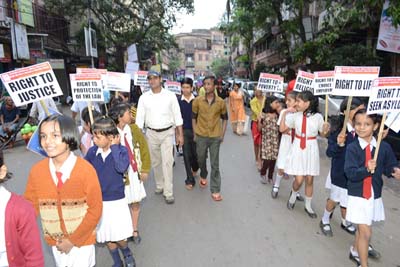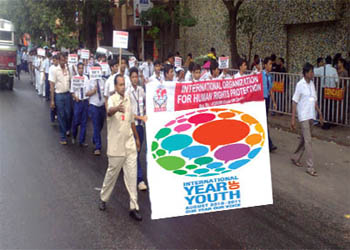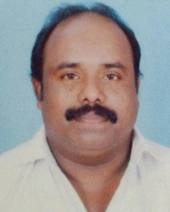|
INTELLIGENCE CELL
Criminal justice is a system that practices and institutionalize positive social control in our country. In forfending occurrence of crime and to deter delinquents from committing any criminal act in the future, our criminal justice agencies such as law courts, police services, prison and community-based correction centres, extents services by authorizing those who violate laws with criminal penalties and rehabilitation efforts.
Criminologist creates profiles on alleged criminals by analysing acceptable behaviours and unusual behavioural patterns predominant in a society. Factors such as psychology, sociology and biology contributes in inspecting crime and criminal behaviour. Consultants, after reviewing the case testify on the witness stand in court proceedings to speed-up trials and arrange jury and legal depositions. Questioning suspects, studying demographic data, types of crime, locations and attitudes are some of our functions.
We serve as advocates on behalf of victims by aiding them legal strength to reduce risks of (i) delayed convictions and (ii) harassment of those who are innocent but facing prosecution. Our practices involve (i) FORENSIC ANALYTICAL SERVICES [Audio/Video Authentication, Questioned Documents, Polygraph/Lie-Detector, and Medico-Legal, DNA sampling and Disputed Fingerprints] (ii) Implementation of strategies for CRIME PREVENTION (iii) and CRIMINAL REHABILITATION through psychotherapies and various other techniques which involve examining their frame of mind and motivational factors. Intervention programs and diversion programs are developed to reduce recidivism and (iv) be responsible for victims of HUMAN RIGHTS
Criminal Profiling is performed by Expert Criminologist by compiling statistical data and identifiable patterns to learn criminal traits of offenders [modus operandi]. Psychological evaluations are administered while screening the offended individual like polygraph tests, assessments on pro-social behaviour, Anti- social personality disorder, choice dilemma and rumination.
Investigators, examine backgrounds, social histories and offence conduct of criminals, juvenile delinquents and victims of crime during the court proceedings, [either under custody or out on bail] and at reintegration process.
Laws provide enormous protection for foreign nationals in our country. We make sure of their security amenities and lead them through correct channels.
Assist family of convicts who are serving Life imprisonment. Backing up their children for education and old age home care for aged parents. Also, we provide appropriate legal aid for victims of crime and their family.
Amicable public policies are revised to help communities reach out to their rights and benefactions. Policies relating to treatment of situations causing criminal behaviours are instigated for crime prevention. Integrated theories of crime and clinical valuations form institute to avert crime. Our expertise help in jury selection, preparation of witness and mediation to compromise cases. Thus a catalogue data is maintained to facilitate the justice system and patrons about the possible causes of crime and its hindrance.
|
SUPREME COURT DIRECTION TO BE FOLLOWED IN CASES OF ARREST OR DETENTION (997(1) SCC 416)
1.The police personnel carrying out the arrest and handling the interrogation of the arrestee should hear accurate, visible and clear Indemnification and name tags with their designations. The particulars of all such police personnel who handle interrogation of the arrestee must be recorded in a register.
2.That the police officer carrying out the arrest of the arrestee shall prepare a memo of arrest at the time of arrest and such memo shall be attested by at least one witness, who may either be a member of the family of the arrestee or a respectable person of the locality from where the arrest is made. It shall also be countersigned by the arrestee, and shall contain the time and date of arrest.
3.A person who has been arrested or detained and is being held in custody in a police station or interrogation centre or other lock-up, shall be entitled to have one friend or relative or other person known to him or having interest in his welfare being informed, as soon as practicable, that he has been arrested and is being detained at the particular place, unless the attesting witness of the memo of arrest is himself such a friend or a relative of the arrestee.
4.The time, place of arrest and venue of custody of an arrestee must be notified by the police where the next friend or relative of the arrestee lives outside the district or town through the Legal Aid Organisation in the District and the police station of the area concerned telegraphically within a period of 8 to 12 hours after the arrest.
5. The person arrested must be made aware of this right to have someone informed of his arrest or detention as soon as he is put under arrest or is detained.
6. An entry must be made in the diary at the place of detention regarding the arrest of the person which shall also disclose the name of the next friend of the person who has been informed of the arrest and the names and particulars of the police officials in whose custody the arrestee is.
7.The arrestee should, where he so requests, be also examined at the time of his arrest and major and minor injuries, if any present on his/her body, must be recorded at that time. The "Inspection Memo" must be signed both by the arrestee and the police officer effecting the arrest and its copy provided to the arrestee.
8.The arrestee should be subjected to medical examination by a trained doctor every 48 hours during his detention in custody by a doctor on the panel of approved doctors appointed by Director, Health Services of the State or Union Territory concerned. Director, Health Services should prepare such a panel for all tehsils and districts as well.
9.Copies of all the documents including the memo of arrest. referred to above, should be sent to the IIIaqa Magistrate for his record.
10. The arrestee may be permitted to meet his lawyer during interrogation, throughout the interrogation.
11. A police control room should be provided at all district and State headquarters, where information regarding the arrest and the place of custody of the arrestee shall be communicated by the officer causing the arrest, within 12 hours of effecting the arrest and at the police control room it should be displayed on a conspicuous notice board.
Failure to comply with the requirements hereinabove mentioned shall apart from rendering the official concerned liable for departmental action. also render him liable to be punished for contempt of court and the proceedings for contempt of court may be instituted in any High Court of the country, having territorial jurisdiction over the matter.
|
|















.jpg)















.jpg)

.jpg)



.jpg)





.jpg)





